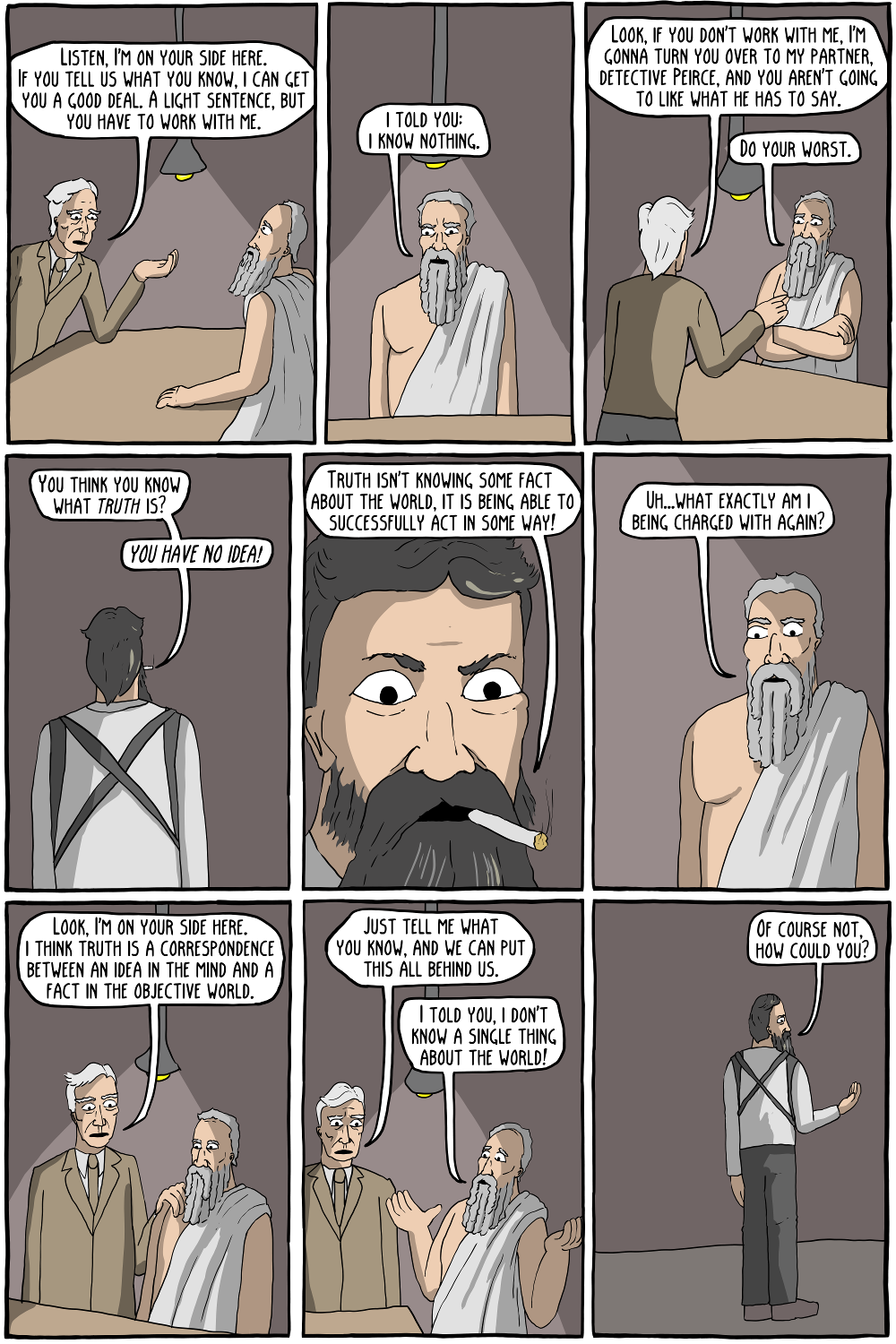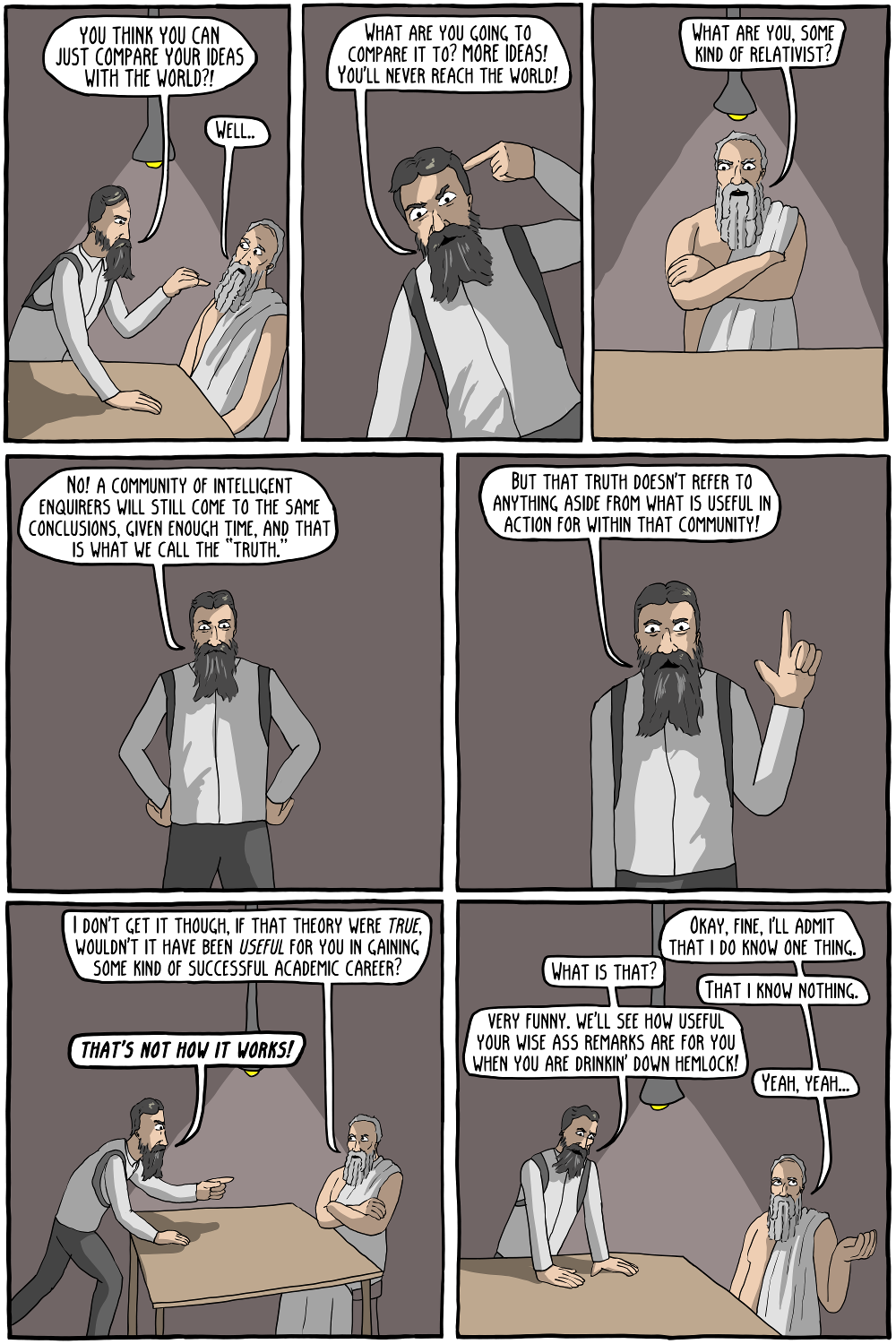

American Pragmatism, which Charles Sander Peirce is largely credited with inventing, holds that knowledge can only be understood as it is tied to action. Unlike traditional conceptions of truth, which hold that knowledge is a correspondence of an idea in the mind and a reality in the world, pragmatists like Peirce insist that if you can't do something with the knowledge, then it doesn't count as knowledge. What Peirce meant by "to do something" with it was largely scientific experiments. For example, we have knowledge of higgs bosons insofar as we were able to actively produce an effect in the Large Hadron Collider. More mundanely, we have knowledge of chess insofar as we are able to play it. Either way, the knowledge has to be tied to some kind of effect that was produced by use. In this way he was in some ways similar to the positivists, who believed that any piece of knowledge that wasn't empirically verifiable was meaningless. Peirce would agree that metaphysical speculation that had no demonstrable effect on the world was useless, but he didn't agree that "verifying" an idea told us anything about the world directly, only about the success of the action itself. So when we do an experiment, we don't verify what the world is it itself, we only verify what we can do successfully in the world. While some of the later pragmatists tended to be more relativistic (i.e., what is useful for me is knowledge for me, what is useful for you is knowledge for you, and they may not be the same), Peirce believed that a certain kind of objectivity still exists, and all "intelligent enquirers" would eventually still come to the same conclusions, just as a community of ideal chess players will eventually agree on what the best strategy is. His ideas, while revolutionary, did not succeed in his lifetime of giving him a good academic career, for whatever reasons. He didn't really become popular until William James gave his ideas more prominence.
Him and Bertrand Russell (who roughly holds a classic correspondence theory of truth) are interviewing Socrates, presumably preceding his famous trial about whether or not he had corrupted the Athenian youth. Socrates bravely holds out and keeps to his story that he only knows that he knows nothing. Really though, and maybe this is just me, but I'm pretty sure that he actually thought that he knew some stuff.
Permanent Link to this Comic: https://existentialcomics.com/comic/115
Support the comic on Patreon!










